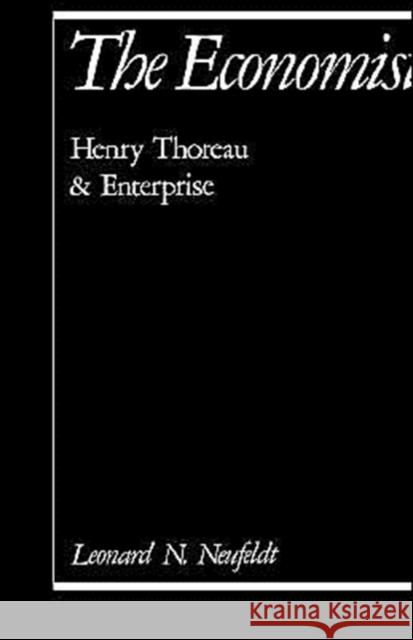The Economist: Henry Thoreau and Enterprise » książka
The Economist: Henry Thoreau and Enterprise
ISBN-13: 9780195057898 / Angielski / Twarda / 1989 / 232 str.
This major study brings to light Thoreau's relation to the complex economic discourse of his time and place. Specifically, it examines the impact of transformations in economic thinking and behavior that occurred in antebellum New England and America; these transformations at the level of language; and Thoreau's awareness of these transformations. Neufeldt situates Thoreau in significant economic conditions of his time, investigating how these conditions contained him even as he sought to contain them. Using Walden and "Life without Principle," as main examples, the book considers the questions of why and how Thoreau, who was very much shaped by his culture and its conventions, also contested the limitations of those conventions and used his condition to transform some of them. Thoreau's identity as a literary artist who regarded his writing as his cultural vocation is at the center of the discussion.











